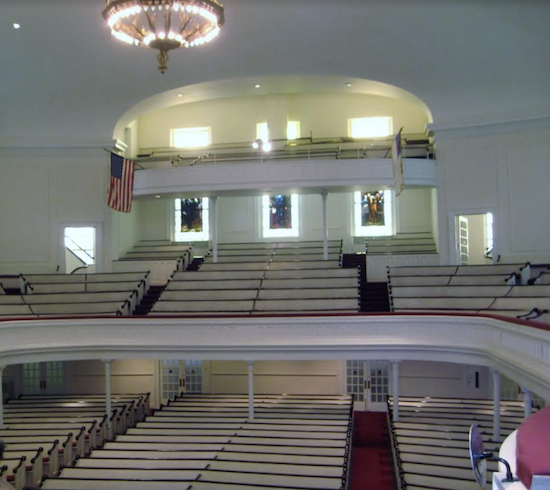Faith In Brooklyn for April 3

Plymouth Church's sanctuary. Eagle photo by Francesca N. Tate
Retrospective
Rev. Dr. Martin Luther King Preached At Plymouth Church in 1963
As the nation paused on April 4 to commemorate the 50th anniversary of the Rev. Dr. Martin Luther King Jr.’s assassination, Brooklyn is currently seeing a renewed interest in a sermon that he preached in 1963 at Plymouth Church, already famed for its role in the abolition of slavery and the Underground Railroad. Dr. King’s sermon contained admonishments and hopes that many people echo today through marches, speeches, news and social media.

Brooklyn Heights
View MoreRead the Brooklyn Height's Press and Cobble Hill News. Find out more about Brooklyn Height's History here.